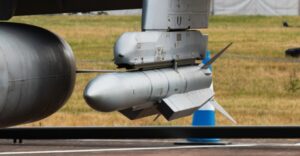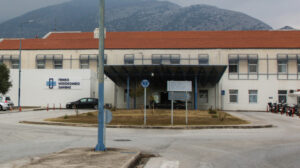Today, Greece’s Minister of National Defense, Nikos Dendias, expressed Greece‘s categorical opposition to the potential sale of the BVR (Beyond Visual Range) air-to-air Meteor missiles to Turkey, from a consortium involving France. He conveyed Greece’s “strong opposition to such a possibility, which is not in line with the excellent strategic relations between the two countries so far,” to the French Ambassador to Greece, Laurence Auer.
The summoning of the French Ambassador to the Ministry of Defense followed an update from Prime Minister Kyriakos Mitsotakis and Foreign Minister Giorgos Gerapetritis, at a time when the Greek-French defense agreement is deepening further, even into defense technology matters.
However, this does not mean that for Athens, the provisions of the Greek-French Defense Agreement, signed in 2021 by then-Defense Minister Nikos Panagiotopoulos and Florence Parly, as well as Foreign Minister Nikos Dendias and his French counterpart Jean-Yves Le Drian, remain at the level of mere diplomatic formulations. Article 15 of the agreement stipulates that “Greece and France deepen their cooperation in defense matters while simultaneously seeking to strengthen European defense. They consult each other at all levels, aiming to form a common understanding on all important decisions affecting their common defense interests and joint actions whenever possible,” a point not overlooked by the Ministry of Defense.
Why the METEOR is a Game Changer
This is especially relevant in the context of the deterrent power Turkey seeks to develop, as air-to-air BVR Meteor missiles are considered, according to military analysts, a “game changer” in terms of air superiority. They support “no escape zone” scenarios, with a range of around 200 kilometers and a zone of absolute no escape at 60 kilometers. For this reason, their operational capabilities have become a focus for the neighboring country, which is now attempting to exert pressure on Paris. Meanwhile, military circles connect Turkey’s interest with the fact that BVR METEOR missiles are already in the arsenal of the Greek Rafale jets, dramatically increasing the power gap between the Greek and Turkish Air Forces.
In fact, Greece’s air superiority has raised concerns at Turkey’s National Security Council (more than once), as the 24 Rafale aircraft, the 83 F-16 Viper jets being upgraded, and the future participation in the F-35 program are creating conditions for air superiority, pushing Ankara to look for alternative solutions. Among these, Turkey is in talks primarily with Germany for the procurement of Eurofighter jets, which can carry Meteor air-to-air missiles, should France grant the necessary approval. France is involved along with Italy, Sweden, Spain, Germany, and the United Kingdom, with the latter acting as the main coordinator.
It is worth noting that Turkey’s most advanced missiles are the AMRAAM C7, but the Meteor is clearly superior to Turkey’s AMRAAMs, as it has greater range, a ramjet engine, higher kill probability, and greater resistance to electronic countermeasures.
Ask me anything
Explore related questions





